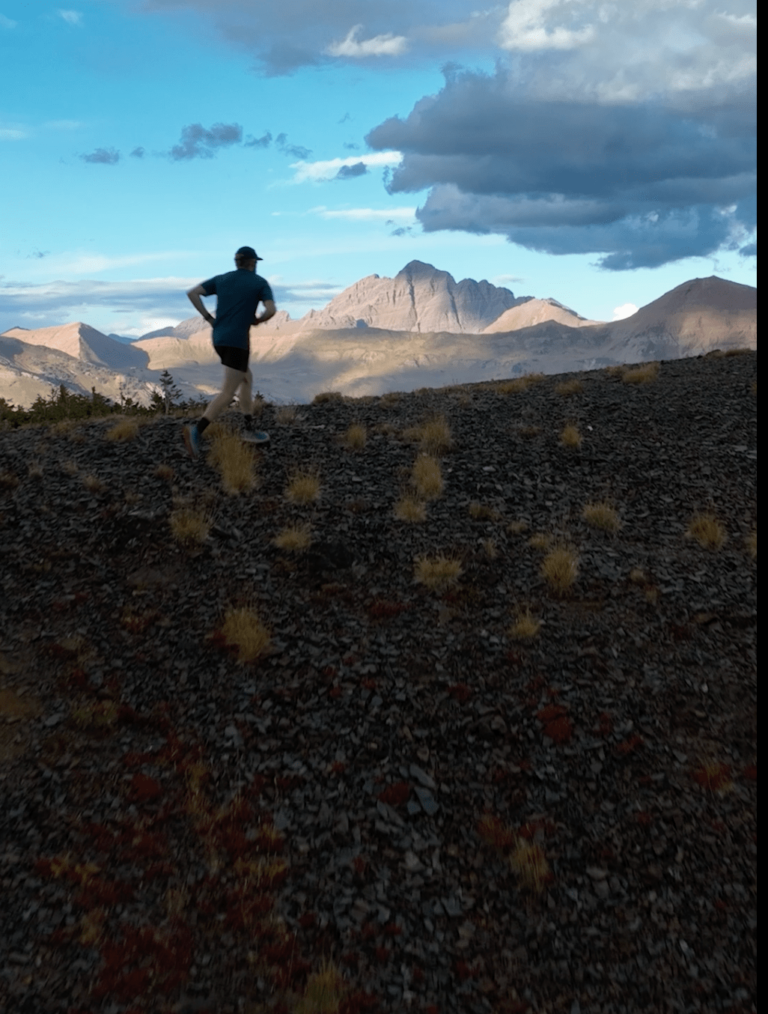
Breckenridge — As the Summit High School auditorium darkened, these words appeared on the screen: “Three people will commit suicide in the United States alone while watching this film. This film will help change that.”
Professional skier Drew Petersen’s “Feel It All” has a lofty goal: to expose the dark side of mental illness that plagues mountain communities. The Colorado-born athlete premiered his latest film in late May at Summit High School, where he graduated second in his class in 2012.
A lifelong skier, Petersen uses footage of himself traversing the peaks of the Sawatch Range and completing the grueling Leadville Trail 100 in under 24 hours to weave a story that illuminates what many are calling the “paradise paradox.”
“How can I feel so lonely, living in this paradise?” he asked the audience of about 300 in a packed auditorium.
Petersen knows loneliness well. He first contemplated suicide when he was 9 years old and in the fourth grade. As a teenager, he was sponsored to ski, won big mountain competitions, and appeared on magazine covers. He talks about climbing remote mountains and thinking about jumping to his death at the top.
“There was a lot going on in my life. I was hiding a lot from the world,” he said. “I was convinced I was the only person in the world who felt the way I did.”

Of the more than 48,000 Americans who died by suicide in 2022, 1,384 Colorado residents took their own lives, making Colorado sixth in the nation for deaths by suicide, behind Wyoming, Montana, Alaska, New Mexico and South Dakota.
The Rocky Mountain states have suicide rates far above the national average, earning them the ominous nickname of “suicide belt.” Within a three-week period after the pandemic began in the spring of 2020, two Summit High School students committed suicide and two more attempted suicide.
“I saw myself as those kids, as I walked down the hallway and felt so down despite being successful academically and on the ski slopes, and I knew that’s how it could have ended,” Petersen said, sobbing. “And in that moment, I knew, 100 percent determined, no questions asked, that I was going to get to a place where I could help those kids. And the reality is, this is what’s happening in mountain towns across the West.”
Petersen clicked through slides showing him and his brother skiing at Silver Couloir on Buffalo Mountain, a short walk from his childhood home in Silverthorne.
“We grew up with the beauty of Summit County and the ski culture, but we also grew up embracing other realities. My story is the story of our community. The reality is that we live in paradise, but we also have conflicting experiences. We have struggles. Focusing solely on the fact that we live in paradise invalidates those experiences, which can sometimes be stressful.”
So for the past three years, Petersen has made it her mission to share her story and eradicate the stigma surrounding mental illness.
“Solutions start with talking,” he said.
Petersen estimates that in the past three years of his work, nearly half a million people have watched his presentations, read his journal articles or listened to his podcasts where he talks about his mental health journey.
“If we make respecting and prioritizing mental health a core part of our mountain town culture, lives will be saved and communities will thrive,” he said.
He went to therapy for years, uncovering the defense mechanisms that had been masking his depression. Skiing and running were one thing. Drinking was another. These are core elements of a mountain-town culture where outdoor athletes play hard and live hard.
Petersen quickly saw that skiing could be a crutch to mask underlying health issues. Skiing and outdoor exercise are not meant to replace the need for medical treatment, he said. Don’t use outdoor recreation alone as a means to address health issues that may require more treatment, like medication or therapy.
Dylan Stein moved to Summit County in 2021 with plans to ski as much as he could, maybe helping him overcome the blues that sometimes hit him.
“I was in a position where I was relying on my skis,” Stein said.
Now, as a community outreach coordinator for Building Hope of Summit County, Stein helps residents access mental health resources, and she works with Petersen to break down barriers that stop people from seeing a therapist or talking about mental health issues.
“Drew likes to say he’s climbed mountain peaks. He’s been on magazine covers. He’s traveled the world skiing. He’s lived the life any skier dreams of. But even then, he thought about suicide and depression,” Stein says. “It just goes to show that skiing or anything like that doesn’t cure mental illness. Outdoor activity can be one piece of the puzzle, but it’s only one coping mechanism that includes therapy, diet, exercise and all the other tools available.” Petersen ended his crowdfunding campaign last week, which has raised more than $40,000 in support of “Feel It All.” Check it out here.


